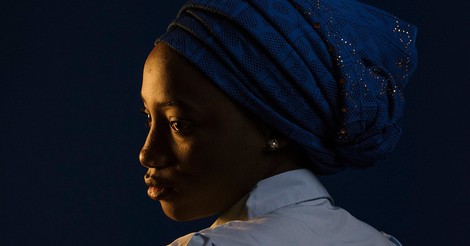Your podcast discovery platform
Curious minds select the most fascinating podcasts from around the world. Discover hand-piqd audio recommendations on your favorite topics.

piqer for: Global finds Doing Good
Helen Morgan is a writer and editor with a background in human rights and migration issues. She is an associate editor at Devex, the media platform for the global development community, focusing on multimedia storytelling and video production for thematic and issue-focused digital series. Currently based in Barcelona, Spain, she has previously written for a variety of international publications while living and working in Buenos Aires, New York and Shanghai.
Kidnapped As School Girls By Boko Haram: Here They Are Now
It’s been more than four years since the abduction of the Chibok girls by Boko Haram, a group that’s killed and kidnapped thousands of civilians across northern Nigeria. While over 100 girls remain in captivity, almost half of the girls have been released, and all but one are now at a university and studying English. They are said to be the lucky ones.
To bring attention to the issue once again, The New York Times created an interactive feature that weaves together layers of portraits, giving the reader the opportunity to explore what the girls' lives are like now. It puts faces to names, identities to the often-anonymous numbers, and aims to give dignity to these women’s lives beyond the kidnapping.
“The vast majority of Boko Haram’s victims will remain anonymous and unaccounted for, their names never broadcast across the globe.”
As well as documenting the people behind the stories, the piece also explores the university’s role in the girls' reintegration. Officials at the university had no experience educating a large group of former hostages from village schools. “We’ll take them all and figure it out,” the university’s president, Dawn Dekle, recalled thinking. “They were traumatised as a group. Their healing has to be in a group.”
At the university, officials prepared by renovating a dormitory so they all could be housed together, and found classrooms to accommodate the extra pupils. The assistant dean of student affairs became the women’s de facto principal. A therapist in the United States, who had counseled some of the early escapees from the kidnapping, was recruited to work as the students’ psychologist. A conference room was designated as a prayer room for the few women who are Muslim. And for the Christian students, the person in charge of the university’s recycling program—who also serves as a local pastor—leads Sunday services.
The feature also takes a broader look at the issue, reminding us that Nigeria is in its ninth year of the war with Boko Haram.
